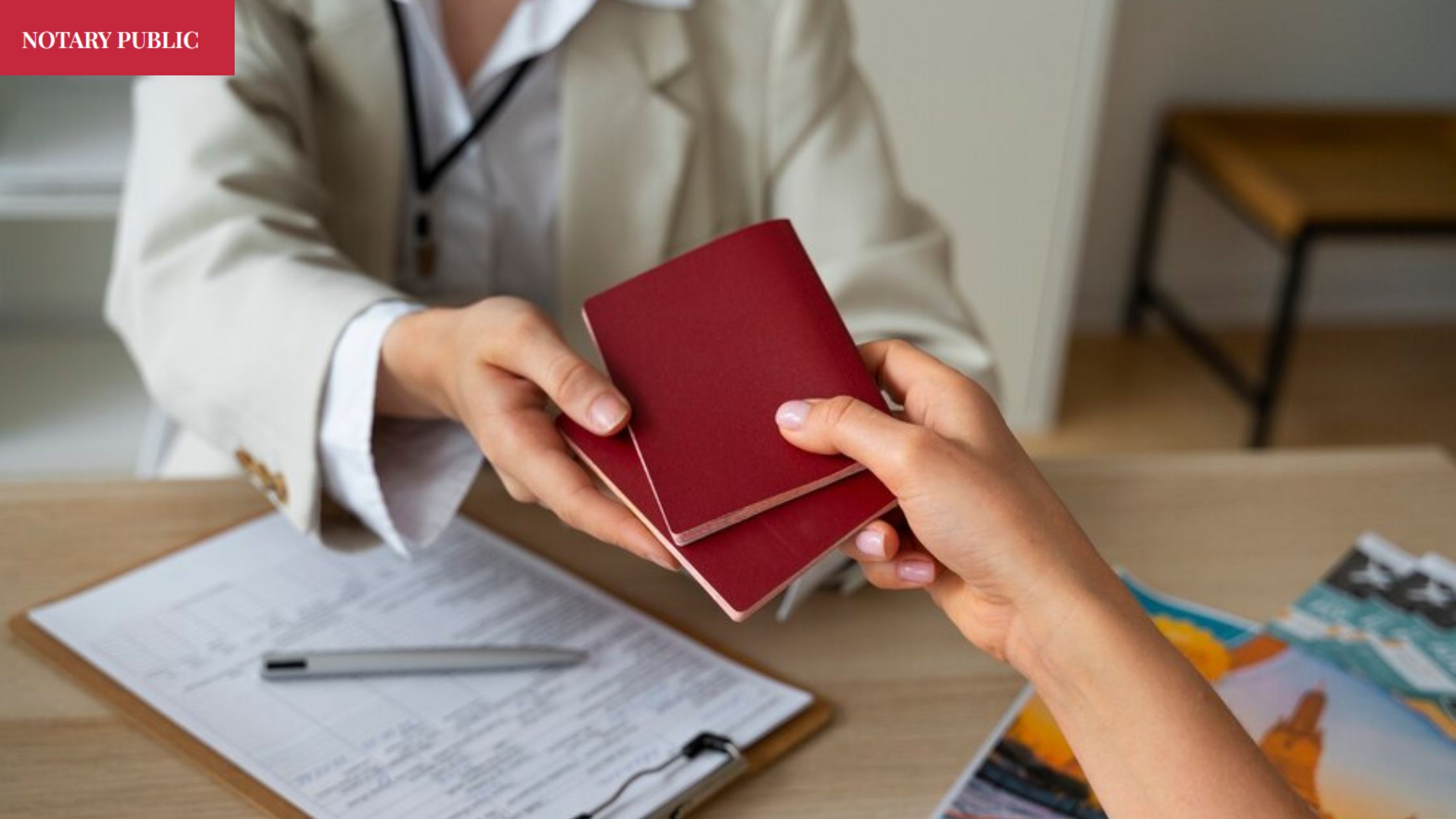Embassy Legalisation plays a pivotal role in facilitating international transactions and engagements, particularly concerning documents bound for Vietnam. The process serves as a vital authentication mechanism, ensuring the legality and credibility of various documents, ranging from educational certificates to business contracts. Understanding the benefits of Vietnam Embassy Legalisation is essential for individuals and businesses navigating cross-border endeavors. By adhering to this procedure, stakeholders can unlock numerous opportunities, from streamlined business operations to enhanced legal security and compliance with Vietnamese regulations. This comprehensive overview delves into the advantages conferred by Embassy Legalisation, shedding light on its significance in the global landscape.
What is Vietnam Embassy Legalisation?
Vietnam Embassy legalisation refers to the process of authenticating documents for use in Vietnam through the country’s embassy or consulate. This procedure ensures that documents originating from another country are recognized as legally valid in Vietnam. Typically, documents such as birth certificates, marriage certificates, academic transcripts, and powers of attorney may require legalisation for various purposes, such as immigration, employment, or business transactions. The legalisation process involves verifying the authenticity of the documents and attaching an official seal or stamp from the Vietnam Embassy or Consulate in the country of origin· It’s a crucial step in ensuring that foreign documents are legally recognized and accepted in Vietnam.
Benefits of Vietnam Embassy Legalisation
1· Enhanced International Recognition and Acceptance
One of the primary advantages of Vietnam Embassy Legalisation lies in its ability to bolster the international recognition and acceptance of documents. Whether it’s academic transcripts, business contracts, or personal certificates, having these documents legalized by the Vietnamese embassy instills confidence and credibility, facilitating seamless interactions and transactions with Vietnamese counterparts.
2· Ensuring Compliance with Vietnamese Regulations
Vietnamese laws and regulations mandate the legalisation of foreign documents to validate their authenticity within the country. By adhering to these requirements through Embassy Legalisation, individuals and businesses ensure compliance, thereby averting potential legal impediments and ensuring smooth operations within Vietnam’s regulatory framework.
3· Streamlining Business Transactions
For businesses engaged in trade or investment activities in Vietnam, Embassy Legalisation streamlines various processes, ranging from establishing corporate entities to negotiating contracts and agreements. Validating documents through Embassy Legalisation enhances transparency and trust, fostering stronger business relationships and facilitating smoother transactions.
4· Expanding Employment Opportunities
Individuals seeking employment in Vietnam often encounter requirements for authenticated educational credentials, professional licenses, or employment contracts. Embassy Legalisation not only satisfies these prerequisites but also enhances employability by presenting credentials officially and credibly, thereby increasing the chances of securing employment opportunities.
5· Facilitating Educational Pursuits
Students pursuing educational opportunities in Vietnam benefit from Embassy Legalisation of their academic transcripts, diplomas, and certificates. This not only expedites enrollment processes but also ensures the recognition of their credentials within Vietnamese educational institutions, thereby facilitating academic pursuits and fostering cultural exchange.
6· Upholding Legal Security and Protection
Legal documents such as powers of attorney, affidavits, and contracts are fundamental to various transactions and agreements. Embassy Legalisation provides an additional layer of legal security and protection by authenticating these documents, thereby reducing the risk of forgery, fraud, or disputes and safeguarding the interests of all parties involved.
7· Fostering Diplomatic Relations
Embassy Legalisations plays a crucial role in fostering diplomatic relations between Vietnam and other nations by facilitating official engagements and exchanges. By adhering to legalisation requirements, countries demonstrate their commitment to upholding legal standards and fostering mutual trust and cooperation in international relations.
8· Enhanced Market Access
For businesses looking to expand into the Vietnamese market, Embassy Legalisation of relevant documents such as business registration certificates and product certifications can significantly ease market entry barriers. By meeting legalisation requirements, businesses gain access to a wider range of opportunities, enabling them to tap into Vietnam’s burgeoning economy with confidence.
9· Protection of Intellectual Property Rights
Intellectual property rights are paramount in today’s global economy, and Embassy Legalisation plays a crucial role in Vietnam. By ensuring the authenticity of patents, trademarks, and copyrights through legalisation, individuals and businesses can protect their intellectual assets from infringement and piracy, thus fostering innovation and creativity.
10· Seamless Financial Transactions
In the realm of international finance and banking, Embassy Legalisations facilitates seamless transactions by validating documents such as bank statements, financial reports, and letters of credit. This reassures financial institutions and counterparties of the legitimacy of transactions, reducing the risk of fraud and enhancing financial security and trust.
11· Access to Government Services and Benefits
For individuals relocating to Vietnam or seeking residency or citizenship, the Embassy Legalisation of personal documents such as birth certificates, marriage certificates, and police clearances is essential. Legalized documents expedite processes related to immigration, healthcare, social security, and other government services, ensuring smooth integration into Vietnamese society.
12· Mitigation of International Disputes
In the event of international disputes or legal proceedings involving Vietnamese entities, the Embassy Legalisation of relevant documents strengthens the evidentiary value and credibility of submissions. This can be instrumental in resolving disputes efficiently through arbitration, mediation, or judicial proceedings, thereby promoting cross-border cooperation and conflict resolution.
13· Promotion of Tourism and Cultural Exchange
Embassy Legalisations facilitates tourism and cultural exchange by validating documents such as travel itineraries, hotel reservations, and tour packages. Tourists and travelers can navigate visa processes and entry requirements with ease, promoting tourism growth and fostering cross-cultural understanding between Vietnam and other nations.
14· Confidence in Real Estate Transactions
For individuals and businesses investing in Vietnamese real estate, the Embassy’s Legalisation of property documents such as titles, deeds, and contracts instills confidence and trust in transactions. Legalized documents assure property ownership rights and legal compliance, mitigating risks and uncertainties in real estate investments.
15· Expansion of International Partnerships
Embassy Legalisation fosters the expansion of international partnerships and collaborations across various sectors, including academia, research, technology, and humanitarian initiatives. By authenticating agreements, memoranda of understanding, and project proposals, legalisation strengthens the foundation for mutually beneficial partnerships, driving innovation and progress on a global scale.
Steps Involved in Vietnam Embassy Legalisation
The process of Vietnam Embassy legalisation typically involves several steps:
Notarisation: The documents must first be notarised by the relevant authorities in the country where they were issued. This step verifies the authenticity of the documents at the local level.
Authentication: Following notarization, the documents are submitted to the appropriate government department or agency for authentication. This step further confirms the legitimacy of the documents.
Legalisation by Vietnam Embassy: Once authenticated, the documents are then submitted to the Embassy or Consulate of Vietnam in the respective country for legalisation. The Embassy affixes its seal or stamp, certifying the documents for use in Vietnam.
Translation (if required): In some cases, documents may need to be translated into Vietnamese before they can be legalised. This ensures that the content of the documents is readily understandable to Vietnamese authorities.
Final Words
The benefits of Vietnam Embassy Legalisations are multifaceted and far-reaching, encompassing various aspects of international affairs, business operations, employment, education, and legal security· By ensuring the authenticity and validity of documents, Embassy Legalisation not only facilitates smoother interactions and transactions but also contributes to the overall integrity and credibility of cross-border engagements· For individuals and businesses seeking to engage with Vietnam, understanding and adhering to the process of Embassy Legalisation is not just advisable but essential for unlocking opportunities and mitigating risks in the global arena·
Embassy Legalisations stands as a testament to the commitment to transparency, legality, and cooperation, serving as a bridge between nations and facilitating the exchange of ideas, goods, and services on a global scale.



